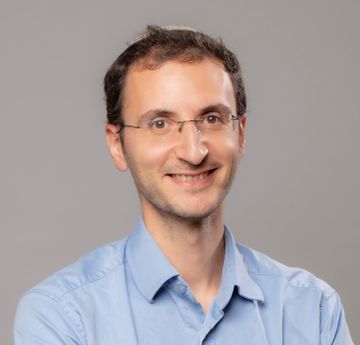Assis. Prof. Michael Levy
The assembly of autonomous self-replicating artificial cells exhibiting the essential characteristics of life is one of the great contemporary scientific challenges.
Our laboratory develops experimental strategies to ultimately move toward the assembly of artificial living systems.
Our general approach is to design biosynthetic platforms based on cell-free gene expression systems and on-chip technologies. These platforms should enable to reconstitute or mimic in vitro specific life-like properties and cellular processes such as gene expression, homeostasis, cell communication or membrane synthesis and division, from the bottom-up.
Our cell-free on-chip approach aims for experimental robustness and quantitative analysis. It allows to control multiple parameters in a chemically well-defined system and to develop high-throughput platforms in order to analyze the mechanisms and first principles involved in the reconstituted processes.
The current research projects include:
- Developing a “surface-bound artificial cell” able to maintain steady-state gene expression.
- Developing an optoelectronic platform that utilizes droplet-in-oil technologies and cell-free gene expression to build a “biolab-on-chip” and synthetic tissues in 2D.
The laboratory is strongly interdisciplinary, at the interface between quantitative biophysics, synthetic biology, biochemistry, and surface science. The experimental work involves techniques from molecular biology, fluorescence microscopy, microfluidics, microfabrication, and optoelectronics. Theoretical models are developed to reach a quantitative interpretation of the observed phenomenon.
Link to lab website: https://levy.net.technion.ac.il/





